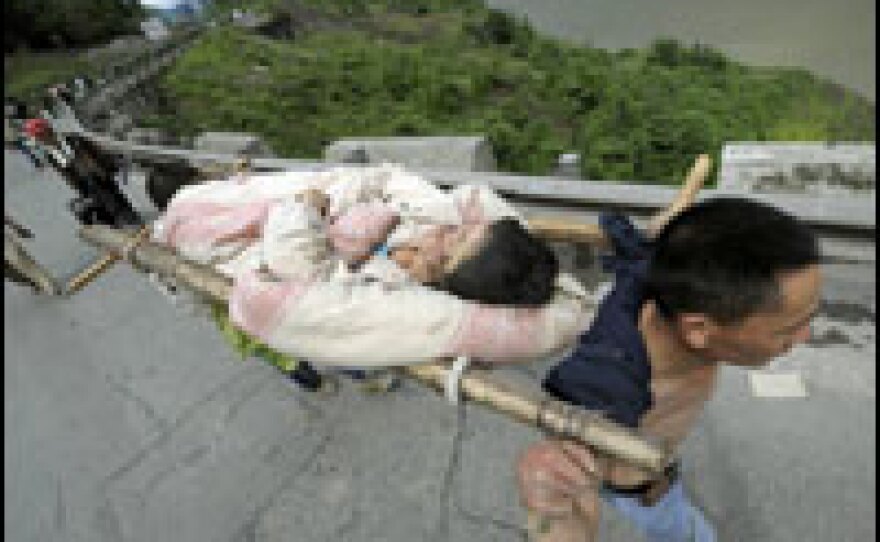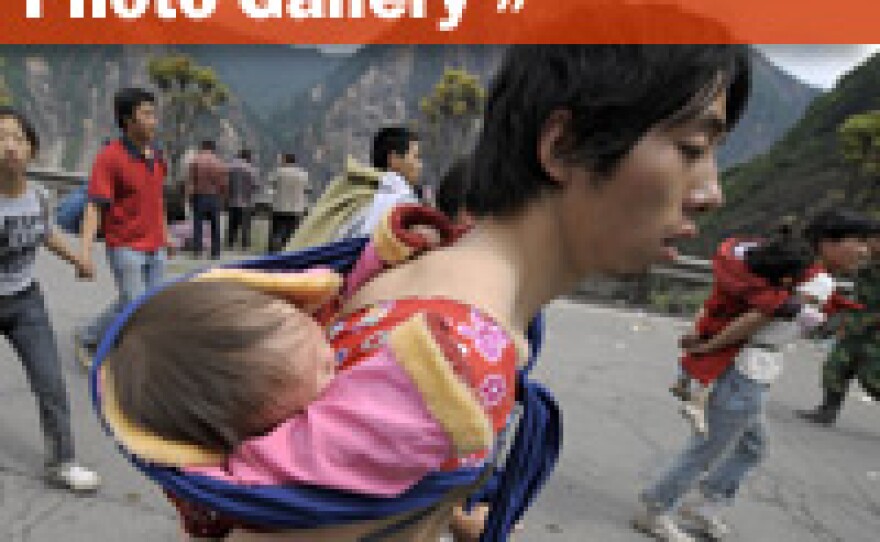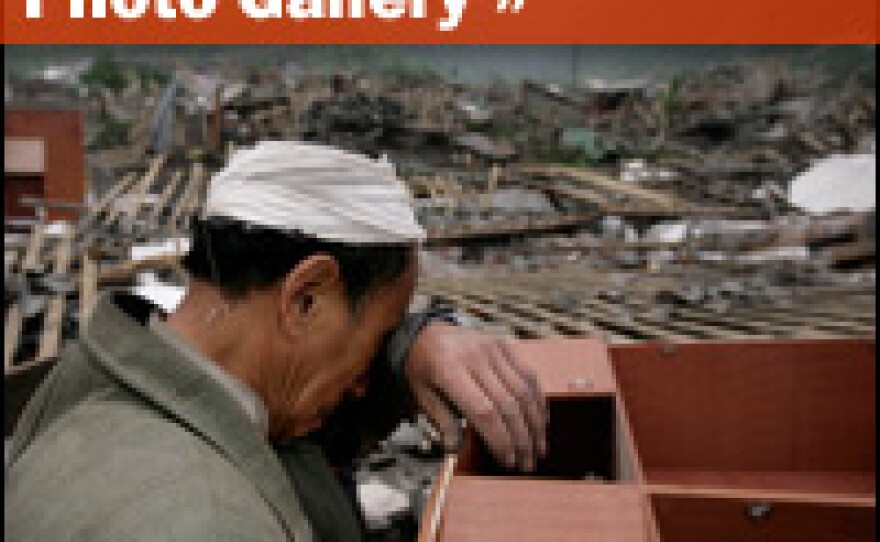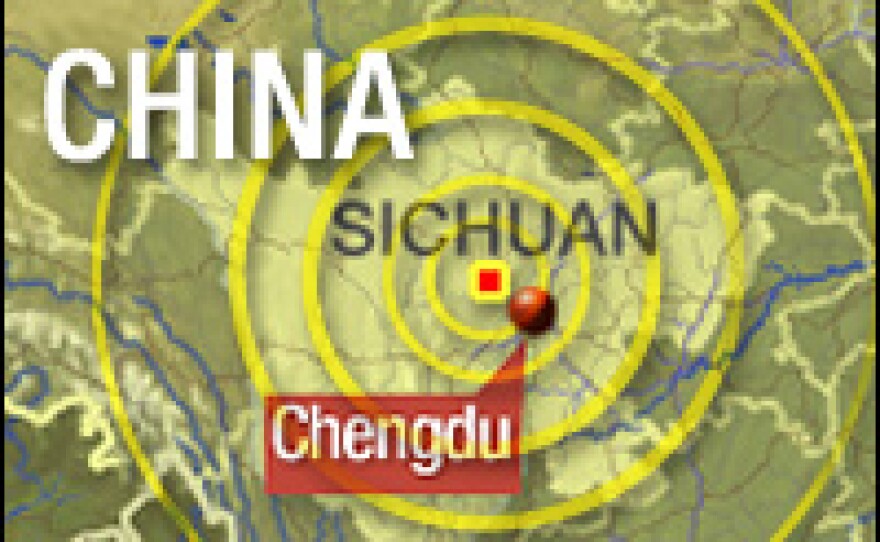



The death toll after a 7.9-magnitude earthquake in China's Sichuan province is now as high as 15,000. The scale of the damage is stretching the country's rescue crews past their capacity, according to Art Silverman, who is part of an NPR crew based in Chengdu, China.
"It was crazy," says Silverman, describing the scene at a makeshift outdoor ward in Chengdu, where he saw an eerie and long line of nurses, waiting precisely in a row, wearing masks. "It recalled 9/11, where the hospitals were waiting for a flood that never came. . . . It was clear everyone is expecting that when they get to the remote areas, they'll have a lot more people coming in."
The problem, Silverman says, is that officials lack the equipment to get doctors to the injured or to get injured to the doctors.
At a city that had been an hour or so away before the quake, Silverman describes an orderly if patched-together convoy of military trucks and other vehicles making what is now a five-hour trip.
"We saw, up on a mountain road, army trucks going up empty, coming back down with injured people. . . . When they ran out of army trucks, we saw dump trucks, with tarps over them. Under the tarps, you could see faces of people coming out of the hills."
Rain that continued all yesterday, Silverman says, could make an already bad situation worse. "Rivers we saw coming down were as high as they could go before you'd see flooding," he says. "This is quite a distance from those mountains. . . . If you get a little rain on that stuff, mud would follow."
For now, the uninjured in Chengdu and other major cities who are eager to help are left to wait — and get organized. Silverman says he saw people in Chengdu lined up around the block to give blood. He also says he spotted what looked like a youth rally, the kind of spontaneous and emotional gathering that normally would draw police interest. This, though, was students organizing themselves into differed types of teams.
"The people with bullhorns were saying, 'People with cars, line over here, people with this skill, line up over here,' " Silverman says. "It's like a Mediterranean society on steroids. I don't know if that's clear — people speak loudly."
It's a much different scene from 30 years ago. Silverman says in 1976 a similarly devastating earthquake was treated as a state secret. "I feel like they've learned something," he says. "There seems to be a lot of pride in saying we can take care of this."
According to news reports, China is accepting money and supplies from around the world, but foreign aid workers are barred from entering the country. For now, experts say there has been no damage to the Three Gorges Dam, the massive hydroelectric project 200 miles east of the epicenter. Likewise, a nearby panda reserve is reportedly unscathed.
Copyright 2022 NPR. To see more, visit https://www.npr.org. 9(MDAzMjM2NDYzMDEyMzc1Njk5NjAxNzY3OQ001))






